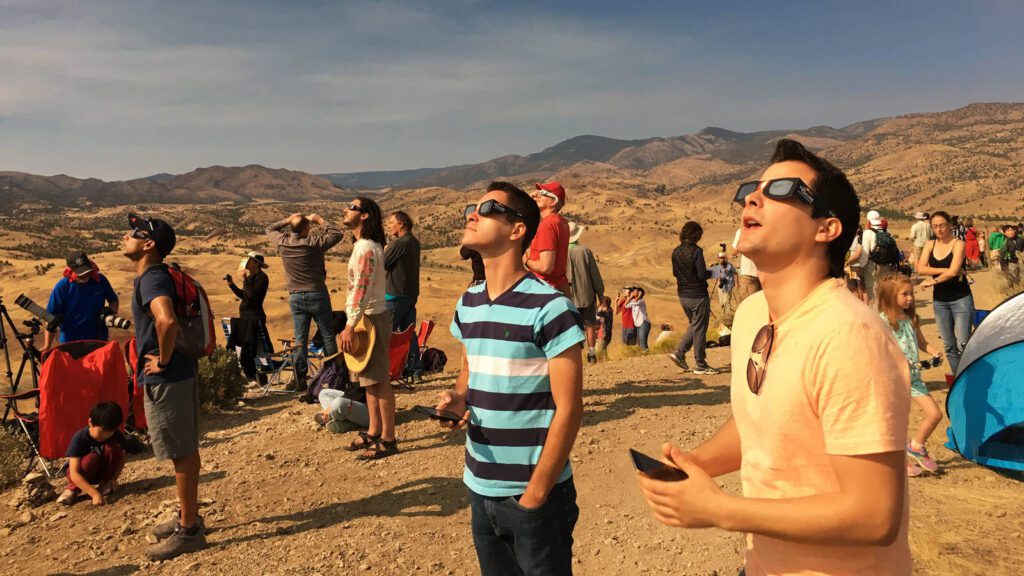
Skift Take
Today’s podcast looks at eclipses’ effects on air travel, Amadeus’ new partnership, and Alaska’s new payment from Boeing.
Listen Now
🎧 Subscribe
Apple Podcasts | Spotify | Overcast | Google Podcasts | Amazon Podcasts
Episode Notes
The total eclipse that will pass diagonally across the U.S. next week is expected to boost tourism in dozens of cities. So how will it impact air travel? Reporters Meghna Maharishi and Elizabeth Casolo have answers.
The Federal Aviation Administration has issued warnings about traffic possibly being higher at airports in the eclipse’s path. However, two airports run by the Niagara Frontier Transportation Authority in New York State aren’t projecting more traffic than usual. Meanwhile, one expert said it’s safe to fly in the middle of a solar eclipse, adding it’s practically no different from flying at night.
United Airlines and Southwest Airlines, among other carriers, have offered flights that provide travelers a chance to see the eclipse.
Next, travel technology company Amadeus announced it has agreed to an expanded partnership with Expedia, writes Executive Editor Dennis Schaal.
Schaal reports Expedia will further incorporate the New Distribution Capability into its operations. The NDC enables online travel agencies to allow travelers to choose their plane seats in advance for many airlines, along with a range of offerings. While Amadeus said the collaboration would enable Expedia to further personalize services, Expedia declined to state which services it might add.
Finally, Alaska Airlines said it’s received $160 million from Boeing as initial compensation for lost profits after the blowout aboard Flight 1282, writes Airlines Reporter Maharishi.
Maharishi notes the $160 million is the initial payment Alaska expects to receive for the blowout in January. However, the terms of future payouts from Boeing haven’t been revealed yet. Alaska Chief Financial Officer Shane Tackett said the company expects to be fully compensated for any losses in the first quarter.
